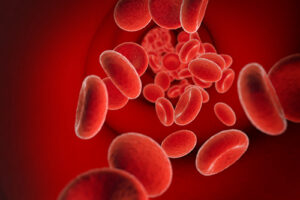Copyright © 2025 Open Medicine Foundation. All Rights Reserved.
The goal of the project is to develop, characterize, and validate a microfluidic chip for the estimation of biomechanical properties of red blood cells (RBCs) isolated from ME/CFS patients vis-à-vis healthy controls.
Several studies have implicated a role of oxidative stress in ME/CFS. Red blood cells (RBCs) are potent scavengers of oxidative stress and their shape changes appreciably in response to oxidative stress; this has been observed in certain inflammatory conditions including obesity and diabetes.
The shape of RBCs determine how well these cells can move through blood vessels so it seems pertinent to determine if RBCs in ME/CFS patients are affected. This has led to the development of a microfluidic device that mimics blood flow through microcapillaries.
Preliminary studies have shown that RBCs from ME/CFS patients had an altered rate of movement through microcapillaries and that RBCs from ME/CFS patients had reduced deformability.
The significant decrease in deformability of RBCs from ME/CFS patients may have origins in oxidative stress and suggests that altered microvascular perfusion can be a possible cause for ME/CFS symptoms.

OMF is a non-profit 501(c)(3) organization
(EIN# 26-4712664). All donations are tax-deductible to the extent allowed by law.



Open Medicine Foundation®
29302 Laro Drive, Agoura Hills, CA 91301 USA
Phone: 650-242-8669
info@omf.ngo
Copyright © 2025 Open Medicine Foundation. All Rights Reserved.
What are the advantages of giving from your Donor Advised Fund (DAF)?
How do I make a donation through my DAF?
Just click on the DAF widget below. It is simple and convenient to find your fund among the over 900 funds in our system.
Still can’t find your fund?
Gifting of Stock
Broker: Schwab
DTC #: 0164
Account #: 47083887
Account Registered as:
Open Medicine Foundation
29302 Laro Drive
Agoura Hills, CA 91301
Please speak to your personal tax advisor and then email or call OMF at 650-242-8669 to notify us of your donation or with any questions.